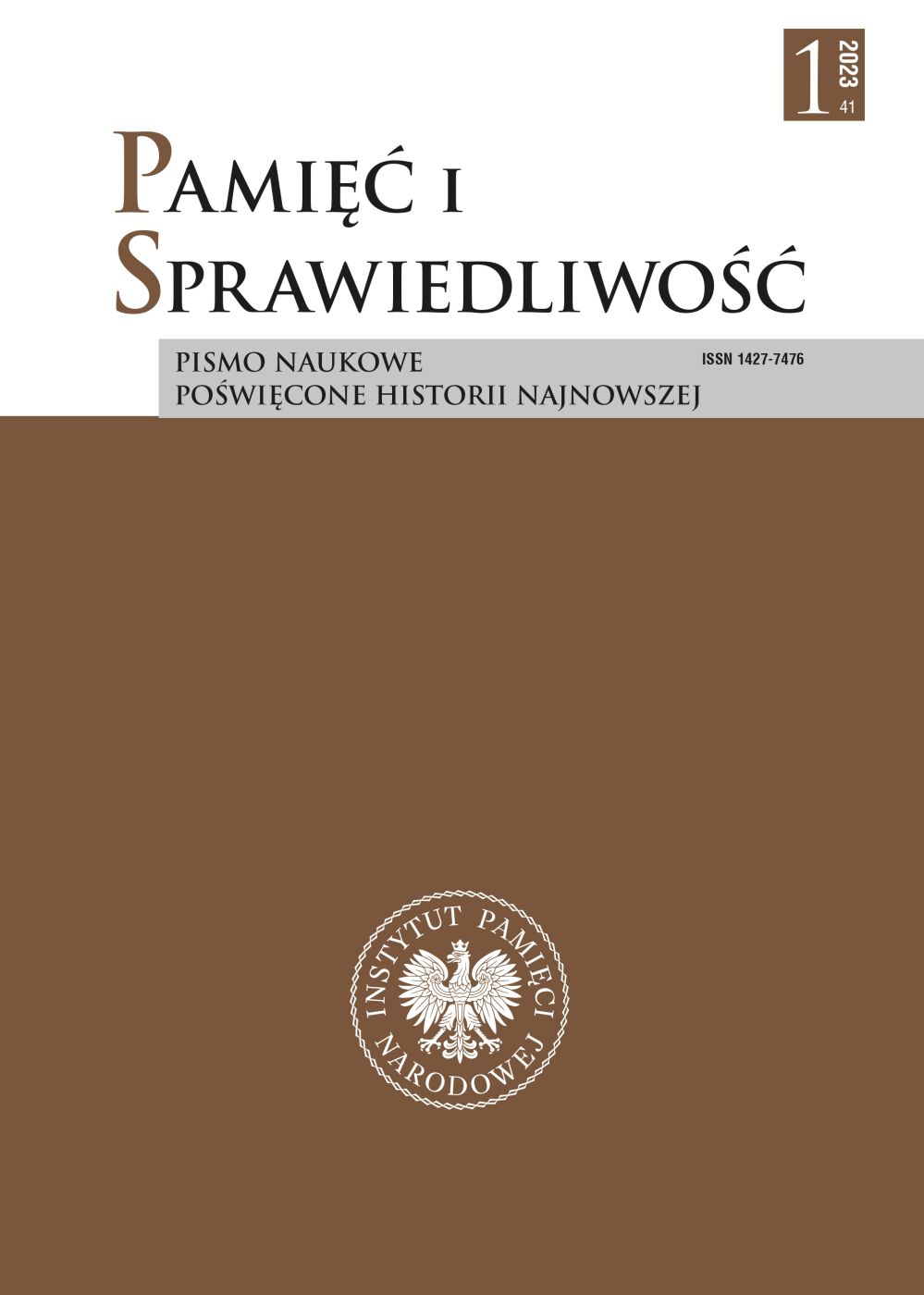Vol. 41 No. 1 (2023)
"Pamięć i Sprawiedliwość" nr 1 (41) 2023
Trzeci Świat, zwany też Globalnym Południem, stanowił ważne pole rywalizacji między supermocarstwami w okresie zimnej wojny. Proces dekolonizacji, zapoczątkowany po II wojnie światowej, spowodował pojawienie się na mapie świata wielu nowych państw, które stanęły przed wyborem ścieżki rozwojowej. Dla wielu z nich socjalizm jawił się jako pożądany model, umożliwiający szybką modernizację po latach kolonialnego wyzysku. W przypadku Związku Sowieckiego dekolonizacja umożliwiła szersze propagowanie ideologii marksistowsko-leninowskiej oraz rozszerzenie rywalizacji politycznej z państwami zachodnimi, zwłaszcza byłymi metropoliami kolonialnymi i Stanami Zjednoczonymi. W tej sytuacji w drugiej połowie lat pięćdziesiątych władze w Moskwie aktywnie zaangażowały się w pomoc polityczną i ekonomiczną wielu nowo powstałym państwom i ruchom narodowowyzwoleńczym. Na wsparcie finansowe, materialne i wojskowe mogły liczyć zwłaszcza te podmioty, które włączyły treści socjalistyczne i marksistowskie do swoich programów politycznych. Wzrost zaangażowania ZSRS w Trzecim Świecie szedł w parze z rosnącą aktywnością na tych obszarach innych państw komunistycznych, zwłaszcza NRD i Czechosłowacji. Swój udział w procesie dekolonizacji miała również Polska, choć skala i forma jej zaangażowania była zazwyczaj mniejsza niż innych krajów bloku sowieckiego. Ostatnie lata przyniosły wiele nowych teorii, spojrzeń i rozważań na temat wielopłaszczyznowych relacji między ZSRS i jego satelitami a Trzecim Światem. Badacze wyraźnie podkreślają, że państwa socjalistyczne, znajdujące się pod kuratelą Moskwy, miały spory margines autonomii w zakresie kształtowania dwustronnych relacji z państwami i ruchami wyzwoleńczymi na Globalnym Południu. Ich polityka wobec tego obszaru nie wynikała jedynie z nakazów i zakazów Moskwy, lecz była wypadkową wielu czynników wewnętrznych i zewnętrznych, w tym możliwości ekonomicznych, ambicji liderów, a także uwarunkowań globalnych. O ile w okresie zimnej wojny badacze zachodni wskazywali na dominującą rolę ideologii jako siły napędowej zaangażowania bloku sowieckiego na Globalnym Południu, to obecnie coraz częściej podkreślają motywację ekonomiczną jako jedną z kluczowych przesłanek aktywności państw socjalistycznych w Azji, Afryce i Ameryce Łacińskiej. Szerokie otwarcie archiwów w większości byłych europejskich państw komunistycznych ułatwiło prowadzenie badań poświęconych ich interakcji z Trzecim Światem, a także pozwoliło na głębsze spojrzenie na rolę ideologii i ekonomii w kształtowaniu relacji między Wschodem a Południem. Umożliwiło też dokładniejsze spojrzenie na politykę poszczególnych krajów socjalistycznych, np. w zakresie pomocy wojskowej dla organizacji antykolonialnych, gdyż różniła się ona skalą i motywacjami. Badania zaprezentowane w niniejszym numerze „Pamięci i Sprawiedliwości” są kontynuacją naukowych dociekań na temat okoliczności, przyczyn i form zaangażowania państw socjalistycznych na Globalnym Południu na podstawie bogatego materiału źródłowego z archiwów polskich oraz zagranicznych.
 Język Polski
Język Polski
 English
English
 Deutsch
Deutsch
 Français (France)
Français (France)
 Italiano
Italiano
 Русский
Русский


 PDF (Język Polski)
PDF (Język Polski)

